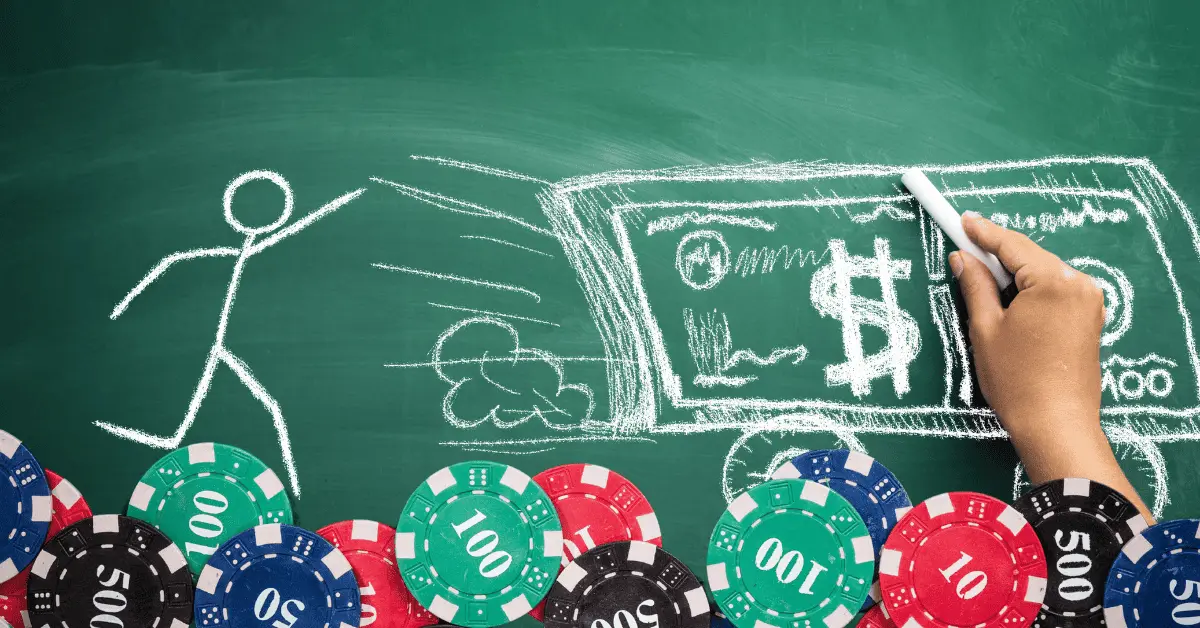Unveiling the Secrets of Casino RTP and RNG | Your Guide to Fair Play

If you ever come across abbreviations for terms that apply to online casino games and feel like a boomer trying to decipher a text thread filled with acronyms you don’t get, don’t feel dumb—or alone.
Just like OMG and IMO, casino-speak has its own shorthand—like RTP and RNG. It’s easy for us to tell you what they stand for–return to player and random number generator. But unless you know what their roles are in relation to casino games, we wouldn’t be much help, would we? Nope.
That’s why we are going to decode the role of RTP and its relationship with RNG with a complete explainer of what these terms mean and how they each operate.
Our guide is designed to eliminate any uncertainties, offering a comprehensive and simple explanation of these terms, their importance, and the impact they have on your play at online casinos.
We are going to look behind the casino curtain to unveil the secrets of casino RTP and RNG with a guide to fair play. Ready? Lets gooooo!

What is RTP and How Does it Work with RNG in Online Gaming
Today, it’s normal to see acronyms pop up in our daily text chats and online conversations. But as we said earlier, sometimes we may not truly get what they mean.
Think online gambling apps are the exception to this trend? Think again—two of the frequently used acronyms in this domain are RTP and RNG.
RTP and RNG have a pretty big role in online casino slot games. Since modern slot games are designed with super sophisticated software with lots of fun features, online casinos have to manage them productively and soundly.
For instance, they need to make sure that their digital games replicate the experience of playing physical slot machines in traditional brick-and-mortar venues like Las Vegas and Atlantic City. To accurately appreciate online slots and their functionalities, it’s consequential to first make sense of the inner machinations of RTP and RNG.

What is RTP?
RTP, which stands for Return to Player, is essentially about understanding the odds of a slot game. It calculates the average return a player gets from their bets on a particular slot game.
Expressed in percentages, RTP indicates the likelihood of winning in a slot machine or any other online casino slot game with a house edge. Generally, these percentages range between 90%, 95, and 98%.
The RTP percentage is determined from millions of spins, considering not just a single player’s experience but that of all players at the casino or globally online. As an example, an online casino slot game with a 95% RTP will give back $95 for every $100 wagered.
However, this doesn’t mean it will pay out exactly $95 for every $100 it takes in. If that were the case, the game would become too predictable.
We, and most gambling experts, recommend focusing on online casino slot games with an RTP of 95% or higher for better odds–a higher chance of winning money and a lower chance of losing it.

Benefits of RTP
Utilizing RTP as a metric can be advantageous, mainly because it helps you set a target when choosing an online slot game. For instance, a slot game with a high Return to Player percentage will include features like wilds, scatters, free spins, and multipliers to make the gameplay more fun and help get to the stated Return to Player percentage.

What is RNG?
The brain of an online slot machine is known as the random number generator or RNG. It produces a sequence of numbers or symbols that can only be anticipated by chance, not by strategizing or attempting to decode the game. This randomness ensures no pattern—and we mean none—can be manipulated so players can cheat. The RNG makes sure that the reels spin unpredictably—without RNG technology, slot games would remain mechanical duds, totally incompatible with online play.

Significance and Benefits of RNG
The Random Number Generator (RNG) forms the foundation of online gambling, including most slot games. It enables operators and game developers to establish and prove fair, transparent play in the games they offer to customers. In the simplest terms, it’s a system that assesses and certifies the authenticity of online gambling platforms to their users.
Game developers rely heavily on RNGs, ensuring that their products are transparent and impartial. Their main goal is to demonstrate the neutrality of the game, showing that it doesn’t favor either the house or the player.
RNG essentially operates as an algorithm within the game; stored within the game files on a remote gaming server, it’s either managed by a third party or the game provider themselves. Once in place, the RNG cannot be manipulated. And it’s not just used for determining jackpot winners but also for developing the content of the games.

Types of RNG
There are two primary types of RNG:
The “True Random Number Generator” (TRNG) is a mechanical device or hardware that employs physical methods to generate randomness, and the “Pseudo-Random Number Generator” (PseudoRNG) uses an algorithm or formula to perform mathematical operations on a starting value to create a random number.
Unlike TRNG, which often relies on environmental factors for unpredictability, PseudoRNG relies on a mathematical approach.

Differences and Similarities between RTP and RNG
It’s important to recognize that RNG and RTP are not the same!
While often confused for each other, RNG and RTP represent distinct concepts. As we stated, RNG is a mechanism that generates endless sequences of random numbers. Return-to-Player (RTP), on the other hand, refers to the percentage of bets returned to players as winnings.
But make no mistake, winning is never a given; RTP merely indicates the likelihood of payout for each game.
These two mechanisms work in conjunction, yet they affect different aspects of online gaming. The RNG ensures the integrity of the casino and the security of its players, whereas RTP measures the effectiveness of this system from the operator’s perspective.

Why RTP & RNG Indicate Fair Play
We’re pretty sure you already know this, but just in case you don’t, casino games are totally based on chance and luck. There is never any certainty of winning or losing, which just adds to the thrill and excitement for those who love to play. While some shady or less-than-reputable online casinos are out there, most online casinos adhere to the strict principles of fair play.
Online slot casino games use the RNG to ensure randomness in every single outcome—when you hit that spin button, the algorithm generates a random number, guaranteeing unpredictability in the game’s result. These casinos also conduct regular tests to verify the integrity of their systems.
In the last few years, online gambling establishments have been incorporating blockchain technology into their platforms, adding to the security and reliability of the online casino.
Takeaways
Now that you are thoroughly schooled on the meaning of these casino acronyms, you won’t make the mistake of thinking RTP means “rip to pieces,” or RNG stands for “really not going.”
Not you—you know that RTP and RNG are separate yet connected components in online gaming! The RNG, aka the Random Number Generation algorithm, ensures fairness and transparency in online casino games.
And the RTP, or Return-to-Player, shows the proportion of the total amount wagered on a slot that is returned to players as winnings. Go forth with this knowledge and spin those slots!

Alyssa contributes sportsbook/online casino reviews, but she also stays on top of any industry news, precisely that of the sports betting market. She’s been an avid sports bettor for many years and has experienced success in growing her bankroll by striking when the iron was hot. In particular, she loves betting on football and basketball at the professional and college levels.








